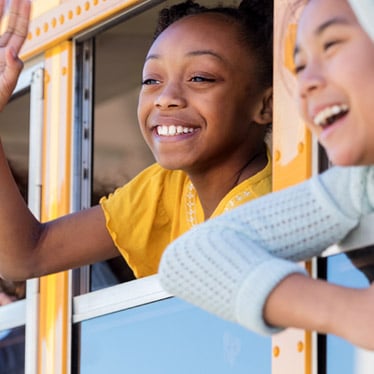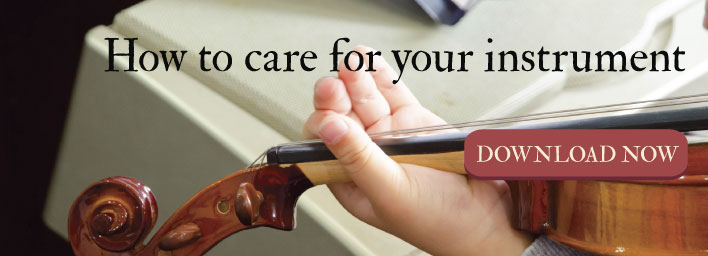6 Great Ideas for Music Field Trips

A merican philosopher John Dewey believed, “There is no such thing as educational value in the abstract.” He also said, “Art is the most effective mode of communications that exists.”
As a music teacher and instructor, you’re already helping students communicate via their string instruments. Now, taking that experience out of the classroom and into the real world via field trips is a valuable way to translate the isolated classroom experience into a realistic perspective.
Field Trips Expand Students’ Musical Horizons
The following field trip ideas will support your students as they assimilate classroom learning with real-world applications. The experience of watching a professional orchestra as they rehearse, attending a live concert or ballet, or supporting a nearby school’s concert season are all ways to expand students’ musical horizons.
1. Observe a community or professional orchestra’s dress rehearsal
Attending a concert is a no-brainer field trip idea. However, have you ever attended a local symphony or professional orchestra’s dress rehearsal? Many are available for free or very low-cost to community members, offering a chance to hear major works for much less than the box office ticket price.
An additional bonus is that students get to observe established musicians in action, listening to how different conductors interact, correct, make requests, or enact small changes in the score to match their interpretation of a piece. It’s a wonderful opportunity to witness that being a musician means being a lifelong learner. Even professional musicians make mistakes, are corrected by their conductor, and always carry a pencil to amend their sheet music.
2. Attend the half-time show at a local sporting event
College or professional sporting event halftime shows are incredible opportunities to see a variety of musicians in action. Prepare the students ahead of time to help them analyze the show from a “musical insider’s” perspective. What worked or what didn’t in the choreography? How do they feel the motion enhances the music, or not? How do they think the complicated steps or movements affect how the musicians practice or experience the event individually and as a group?
3. Head to a local dance performance
Music is one artistic expression, dance is another, and there are exponential benefits in attending professional dance performances that combine the two. The added visual of dancers help engage students’ attention, giving their eyes and brains more to engage with than the typical orchestra performance.
4. Visit a recording studio
Professional musicianship is just one of the prospective musical careers available to students when they graduate from a university or a music school program. Visiting a recording studio is a contemporary way to inspire and engage students who love playing, but are equally or more invested in composition, recording, sound engineering, producing, etc.
5. Tour a luthier’s workshop
Knowing you need to respect your instrument’s anatomy is one thing. Learning how instruments are made, seeing instruments in various stages of creation or repair, and the ability to speak with a real luthier elevates students’ respect for their string instrument and its seemingly effortless ability to produce such a variety of sounds.
6. Tour local university or music school programs
It’s never too early to inspire children to attend a university or designated music program. Call around to local colleges and music schools and ask if they provide age-specific tours or have special events geared to students.
The act of stepping onto a college campus, seeing what college life has to offer, and interacting with professors and current music students, plants seeds of interest that continue to sprout as children advance in their musicianship.
Dos & Don’ts Before Field Trips
For field trips to be successful, students need to be prepared, respectful, and engaged. Here are “Dos & Don’ts” to ensure everyone has a good time, and that your school makes a good impression to keep the doors open for future field trips.
DO:
- Make students earn the right to attend the field trip Plan ahead of time to enlist a sub, so students who haven’t demonstrated the desired behavior or interest won’t diminish the experience for the rest.
- Have ample chaperones via parent volunteers to support behavioral management from start to finish.
- Clearly communicate your behavioral expectations ahead of time.
- Provide a worksheet or a list of questions ahead of time, so students are occupied and have to pay attention to complete it.
- Ensure the time you’ll spend at any of the above or other options is age-appropriate and that there are plenty of breaks for movement.
DON’T:
- Expect student behavior to miraculously “clean up” outside of the classroom. Be prepared to accommodate particular students via a designated, informed chaperone who is capable of supporting their success.
- Move as one big group if there’s a way to divide up into smaller, more manageable groups.
- Choose any field trip that would financially prohibit any student from attending. Look for lower-cost or free options, or fundraise ahead of time, so everyone attends with peace of mind and wallet.
- Go on any field trip without the necessary number of chaperones present.
Are you a music educator who successfully coordinates music field trips for your students? The Stringovation team and followers would love to hear your ideas and suggestions.


